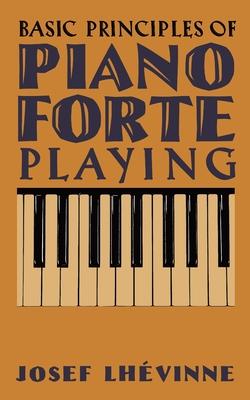Regarded as one of the premier virtuosos of his day, Russian pianist Josef Lhvinne was acclaimed for his effortless technique, supreme tone, and sensitive musicianship. While Lhvinne left only a handful of recordings, those that remain have achieved near mythical status among pianists, even when compared to fellow masters such as Hofmann and Rachmaninoff. Unlike these more prolific contemporaries, Lhvinne always preferred teaching to recording, and his book Principles of Pianoforte Playing is rightfully considered a classic in its field. While Lhvinne does discuss the basics of technique, he chooses to focus more on the other aspects of musicianship: mastery of dynamics, tone, rhythm, space, and the ear. While countless instructive piano books have been written since it was published in 1924, the lessons contained in Principles of Pianoforte Playing are as valuable today as ever, not only to the modern pianist, but to aspiring musicians of all instruments and styles.

Regarded as one of the premier virtuosos of his day, Russian pianist Josef Lhvinne was acclaimed for his effortless technique, supreme tone, and sensitive musicianship. While Lhvinne left only a handful of recordings, those that remain have achieved near mythical status among pianists, even when compared to fellow masters such as Hofmann and Rachmaninoff. Unlike these more prolific contemporaries, Lhvinne always preferred teaching to recording, and his book Principles of Pianoforte Playing is rightfully considered a classic in its field. While Lhvinne does discuss the basics of technique, he chooses to focus more on the other aspects of musicianship: mastery of dynamics, tone, rhythm, space, and the ear. While countless instructive piano books have been written since it was published in 1924, the lessons contained in Principles of Pianoforte Playing are as valuable today as ever, not only to the modern pianist, but to aspiring musicians of all instruments and styles.